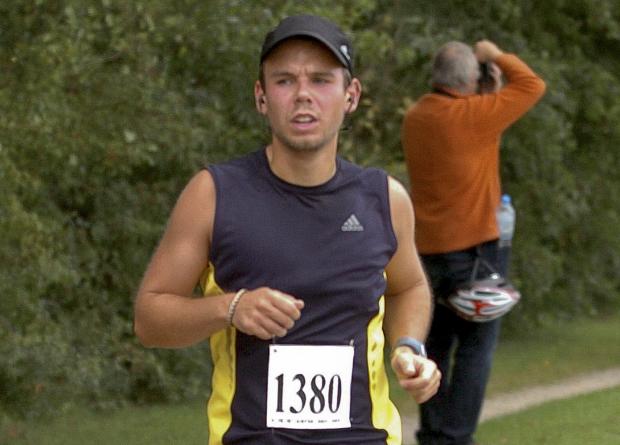Key clue found in Germanwings investigation?
As German police scoured the homes of Germanwings Flight 9525 co-pilot Andreas Lubitz for clues as to what could have prompted him to deliberately fly the Airbus A320 into a rocky mountainside in the French Alps, reports suggested the young man could have suffered a "serious depressive episode" during his training.
CBS News correspondent Allen Pizzey reported that police had searched Lubitz' apartment near Dusseldorf and his family's home in the small town of Montabaur, carrying away bags full of seized items and computer hardware, hoping to find any clues as to what might have triggered his final act.
Seemingly quashing reports early Friday that some profoundly telling clue had been discovered in the search, Dusseldorf police spokeswoman Susanna Heusgen told The Associated Press that "no crucial piece of evidence has been found yet."
But increasing attention has focused on the report in the German tabloid Bild and, other publications, that at one point during his training Lubitz was allegedly treated for severe depression. If true, it apparently did not affect his work or progress in flight training, which he underwent in both Germany and Arizona.
"He had not only fulfilled all the medical tests, but also all flight training," Lufthansa CEO Carsten Spohr said Thursday. Spohr said Lubitz "was 100 percent airworthy, without any restrictions."
German prosecutors confirmed Friday that they had discovered no hints of any political or religious motivation in the deliberate downing of the aircraft.
To all those who knew him, Lubitz seemed a happy, active young man who liked to jog. He spent time on Facebook and other social media sites, including chat rooms for pilots.
His passion for flying began at a gliding club in Germany, where his instructor, club president Klaus Radke, told CBS News he only knew the young man "as a nice, friendly and open human being."
Lubitz began his airline flight training in Bremen, Germany in 2008. He spent five months at Lufthansa's flight training center in Phoenix, Arizona in 2010, and was certified to fly single-engine aircraft in the U.S.
"He told us about how it was in America, how he did his training there," fellow flight club member Peter Ruecker told Pizzey. "He seemed to be very open and happy that he made it that far."
Stunned neighbors in Montabaur, Lubitz' hometown, were struggling Friday morning to understand why he went one fatal step further.
German prosecutor Brice Robin said Thursday that Lubitz had "intentionally" set the Airbus' flight controls on a collision course Tuesday morning after locking the flight's pilot out of the cockpit.
The jet smashed into a rocky mountainside in the southern French Alps, pulverizing the A320 and killing all 150 people on board, including Lubitz himself.
On that mountainside in France, CBS News correspondent Elizabeth Palmer says the search resumed Friday, with some crews using ropes to access the steepest parts.
Red flags marked human remains, but the teams were collecting everything, including the tiny pieces of the shattered plane. It will all be crucial evidence not only for the airline's accident investigation, but for the criminal enquiry which, at the moment, is still being treated as a manslaughter case.
The second "black box," which would have recorded all flight commands from the cockpit, still hasn't been found amid the debris.
Palmer said many victims' family members gathered for a small ceremony in the village of Le Vernet, near the crash site, the flags of their respective home countries on display.
A government spokesman described the gathering as a powerful moment when relatives truly grasped that their beloved family members were dead.
Among the victims were three Americans; a mother and daughter, Yvonne and Emily Selke from Virginia, who were on vacation together, and Robert Oliver, a U.S. citizen and father who had been living and working in Spain.
So far, the families have not been flown over the crash site itself.
Still shocked and grieving, Palmer said they were struggling to accept that the catastrophe that killed their loved ones was looking like an act of mass murder.
The tragedy has already prompted some European airlines to change their rules, falling in line with U.S. protocols requiring two flight crew members to be in the cockpit at all times.
CBS News aviation and safety consultant Captain Chesley "Sully" Sullenberger -- known for the Miracle on the Hudson -- said Thursday on the Evening News with Scott Pelley that the system currently relies on pilots to self-report any issues they need help with.
"We need to make sure we have a just system, a just culture -- and not a punitive one, which might only drive problems underground where they can never be solved," said Sully.
"We need to have a clear pathway so that when pilots need help they can get it, and when they are fit to fly, come back to work and not face scrutiny that results in financial ruin or loss of career unnecessarily."
